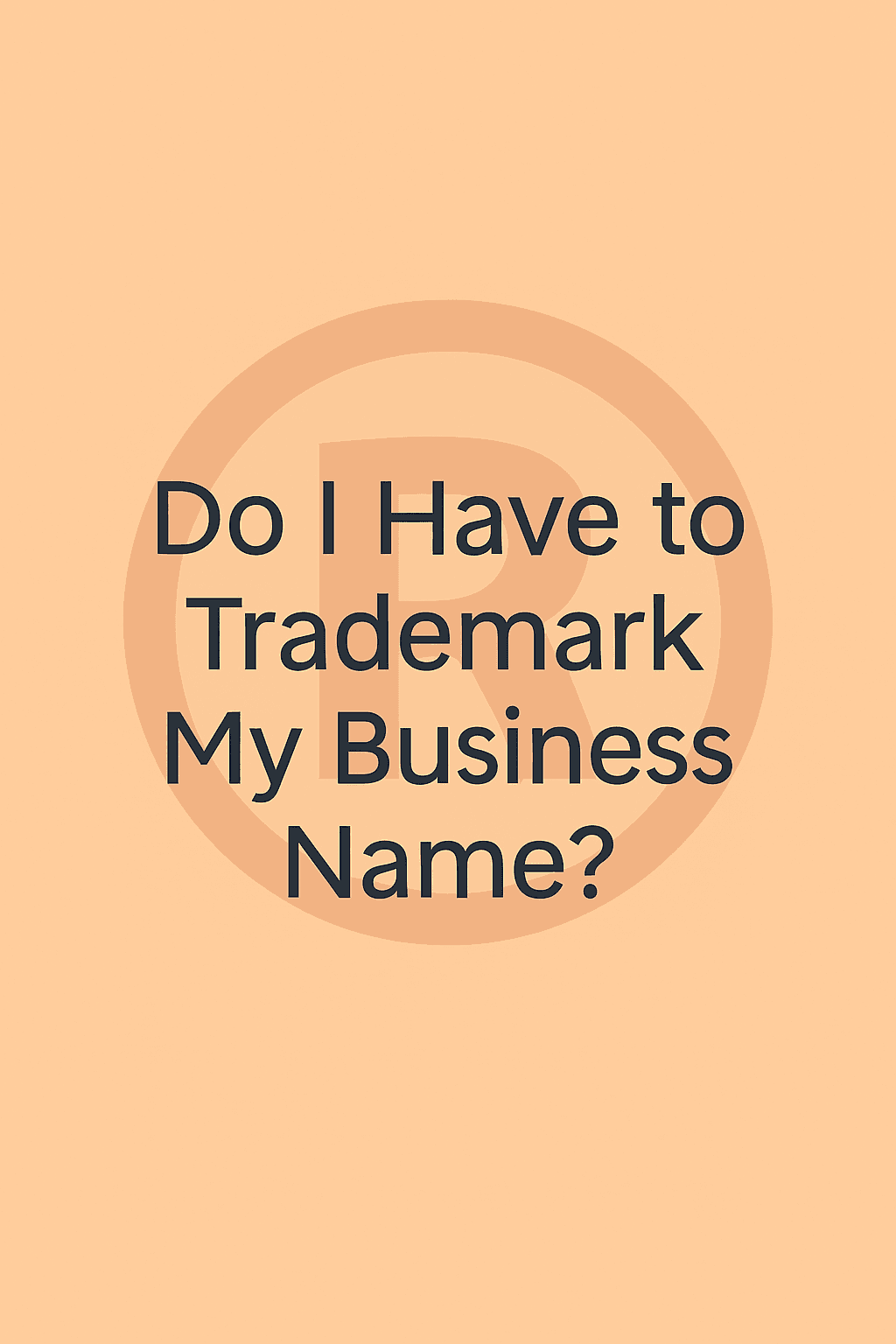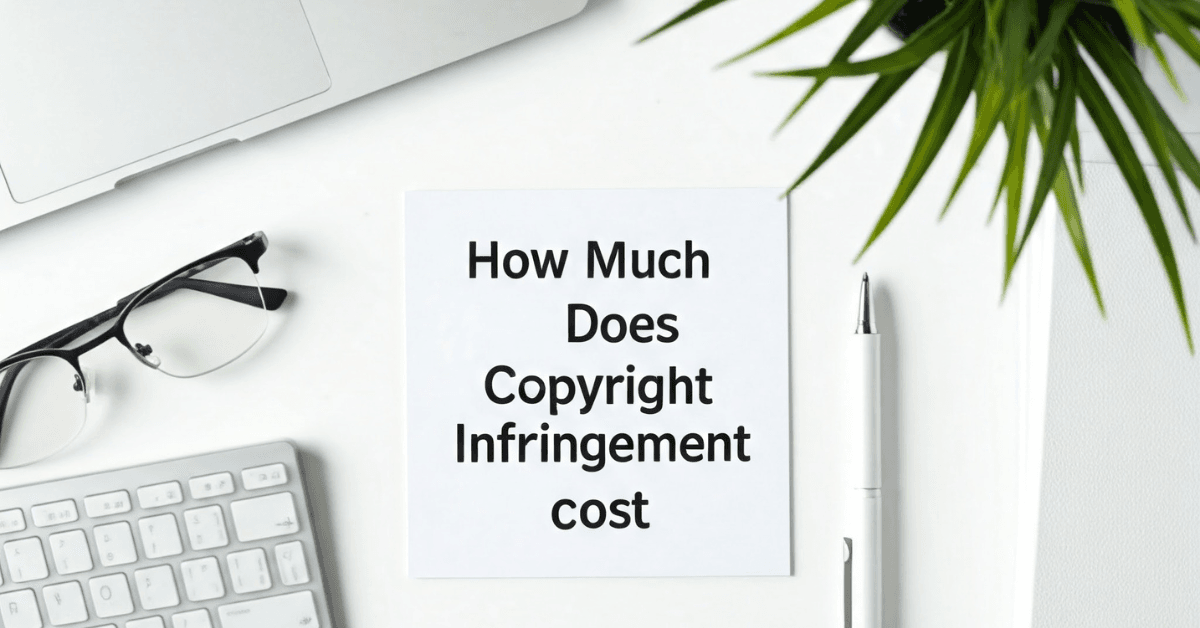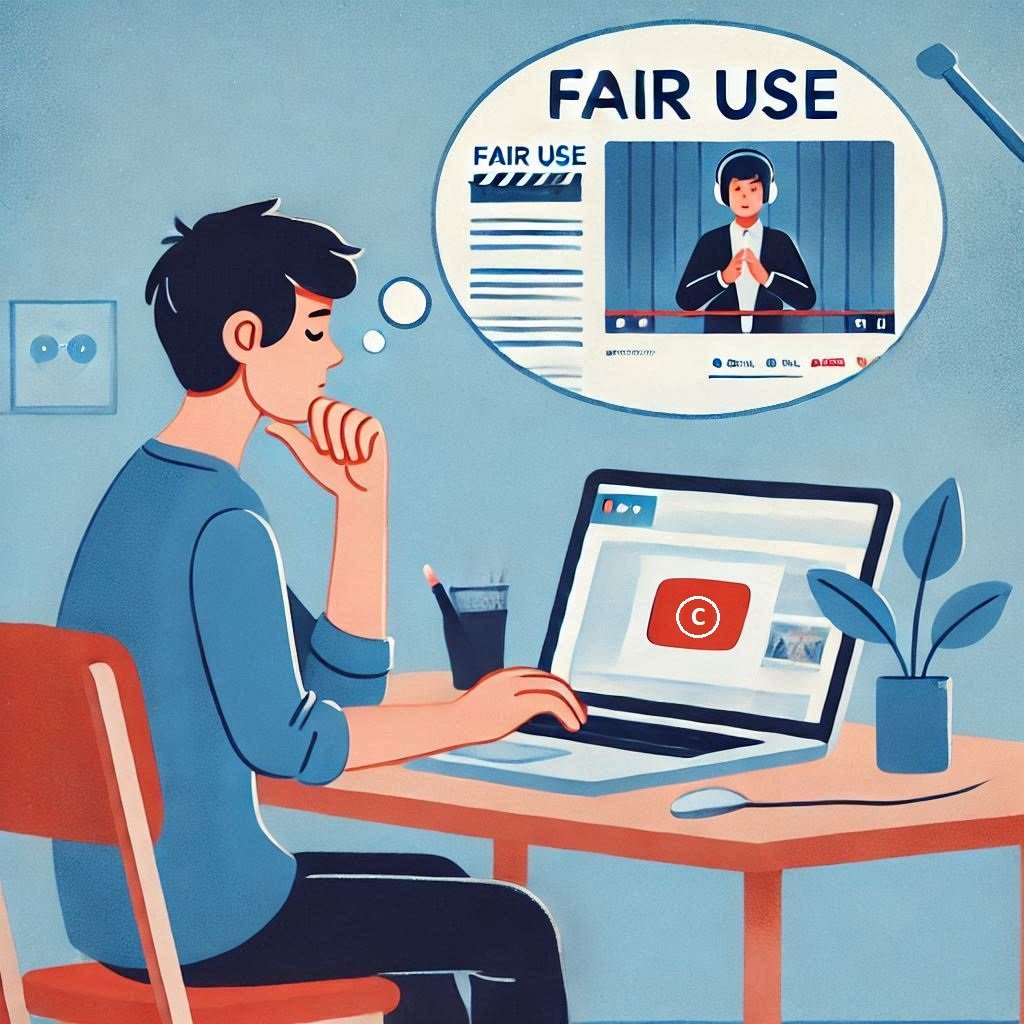When launching a new company, one of the most common questions entrepreneurs ask is, “Do I have to trademark my business name?” It’s a valid concern because many assume that registering a company or forming an LLC automatically protects their brand — but that’s not the case.
Understanding whether you have to trademark your business name is essential to avoid future disputes and ensure your brand identity remains secure. This complete guide explains why you should trademark your business name, what happens if you don’t, and how registration can safeguard your reputation and growth.
What Is a Trademark?
A trademark is a legal right that protects your brand identity—your business name, logo, slogan, or symbol. It ensures that only you can use that mark in connection with your goods or services. Trademarks help customers recognize your brand and prevent others from copying or misusing it.
For example, if you run a bakery called “Sweet Crumbs,” trademarking the name means no other bakery can legally use that name in your jurisdiction. It becomes your exclusive property in the marketplace.
Is Registering My Business Name Enough?
Registering your business name with a government authority—like the Department of Economic Development in Dubai or Companies House in the UK—allows you to legally operate under that name. However, it does not give you exclusive rights to use it in trade or prevent others from using a similar name.
Here’s the difference:
Action | What It Does | What It Doesn’t Do |
Business Name Registration | Allows you to operate under a name | Doesn’t protect against misuse or copying |
Trademark Registration | Gives exclusive legal rights | Requires separate application and fees |
Without a trademark, you may find yourself in a dispute with another business using a similar name—and you’ll have limited legal grounds to stop them.
Do I Have to Trademark My Business Name?
Many business owners often ask, “Do I have to trademark my business name?” The short answer is no — you are not legally required to do so. However, trademarking gives you the exclusive right to use your business name and stops others from using confusingly similar ones. The trademark registration gives you exclusive rights and stronger legal standing against anyone trying to use a similar name.
If you skip registration, someone else could trademark your name first, leaving you with no legal standing. So while the law doesn’t force you, it’s highly recommended if you want to build a lasting and protected brand.
Is Trademarking a Business Name Legally Required?
Registering your business name—whether with the Department of Economic Development in Dubai or Companies House in the UK—allows you to legally operate under that name. However, it does not give you exclusive rights to use the name in trade or prevent others from using a similar name.
To secure exclusive rights, you need to register the name as a trademark with the relevant authority:
- In the UAE, this means filing with the Ministry of Economy under Federal Decree-Law No. 36 of 2021.
- In the U.S., it means registering with the United States Patent and Trademark Office (USPTO).
Without trademark registration:
- You may have limited protection based on use (known as “common law rights” in the U.S.), but enforcement is restricted to your local area.
- In the UAE, unregistered names have no formal legal protection, making it harder to stop others from copying or misusing your brand.
In Hanover Star Milling Co. v. Metcalf, 240 U.S. 403 (1916), the U.S. Supreme Court confirmed that trademark rights arise from use in commerce—but enforcement was limited to the geographic area of operation. This case highlights why formal registration matters.
What Happens If I Don’t Trademark My Business Name?
If you don’t trademark your business name, you risk:
- Losing your name – Another business could register it as a trademark and legally stop you from using it.
- Legal disputes – You may face lawsuits for unintentional infringement if your name is similar to an existing trademark.
- Rebranding costs – Changing your name later can be expensive and harm brand recognition.
Example: In Two Pesos, Inc. v. Taco Cabana, Inc., 505 U.S. 763 (1992), Taco Cabana successfully protected its trade dress (the overall look and feel of its restaurants) without registration. However, this case shows how complicated it can get when you rely only on unregistered rights.
How Is Registering a Business Name Different from Trademarking It?

This distinction can be better understood through the landmark case of Starbucks (HK) Ltd v British Sky Broadcasting Group Plc [2015] UKSC 31.
In Starbucks (HK) Ltd, owner of the “NOW TV” brand in Hong Kong, sued British Sky Broadcasting for launching a television service under the same name in the UK. Starbucks had not yet launched its “NOW TV” service in the UK but had registered the business name and owned goodwill abroad.
The UK Supreme Court ruled against Starbucks, holding that having a business name or goodwill abroad does not grant trademark protection in another jurisdiction. True trademark rights arise only from actual use or registration of the mark in the relevant market.
Key Principle:
“Registration of a business name does not provide exclusive trademark rights. Trademark protection depends on registration or actual commercial use that distinguishes the brand.”
Relevance:
This case highlights that business name registration only allows a company to operate under that name, whereas trademark registration gives exclusive legal protection and the right to prevent others from using similar names or marks.
When Should I Trademark My Business Name?
The best time to trademark your business name is before launching your brand publicly. This ensures that no one else can claim it while you are still in early growth stages.
But even if your business is already running, it’s never too late to file. The earlier you trademark, the stronger your position will be if disputes arise.
Tip: You can also file an “intent-to-use” application with the USPTO (United States Patent and Trademark Office) if you haven’t launched yet but want to secure the name.
How Much Does It Cost to Trademark a Business Name?
Trademark costs vary depending on where and how you file. Here’s a quick breakdown:
United States (USPTO)
Filing Fees:
Base Application Fee: $350 per class for all electronic trademark applications filed via the USPTO’s Trademark Electronic Application System (TEAS). This replaces the previous TEAS Plus ($250) and TEAS Standard ($350) options.
Additional Charges:
Custom Descriptions (“Off-menu”): If you do not use the USPTO’s Trademark ID Manual and instead provide a free-form description of goods/services, an additional $200 fee applies.
Long Descriptions: If your description exceeds 1,000 characters, another $200 surcharge is added.
International (Madrid Protocol)
For international trademark filings via the Madrid Protocol, you must pay two separate fees: a USPTO certification fee and WIPO international fees.
1. USPTO Certification Fee
Amount: $100 per class of goods/services
Purpose: This fee covers USPTO’s review and certification of your international application before it’s forwarded to WIPO.
2. WIPO International Fees
These are paid directly to the World Intellectual Property Organization (WIPO) in Swiss francs (CHF). They include:
| Fee Type | Amount (CHF) | Details |
|---|---|---|
| Basic Fee | 653 (B&W mark) / 903 (Color mark) | Covers up to 3 classes |
| Supplementary Fee | 100 per class beyond 3 | Applies if more than 3 classes are included |
| Complementary Fee | 100 per designated country | Applies unless the country charges an individual fee |
| Individual Fees | Varies by country | Some countries (e.g., UAE, UK) charge their own fees |
You can calculate the exact WIPO fees using their Madrid Fee Calculator.
Can I Trademark a Name Myself or Do I Need a Lawyer?
You can file on your own through the USPTO or relevant authority. However, many applications get rejected due to errors, vague descriptions, or conflicts with existing trademarks.
A lawyer can:
- Conduct a thorough clearance search.
- Draft precise descriptions of goods/services.
- Respond to examiner objections.
Case Example: In Abercrombie & Fitch Co. v. Hunting World, Inc., 537 F.2d 4 (2d Cir. 1976), the court outlined the spectrum of distinctiveness (generic, descriptive, suggestive, arbitrary, fanciful). A lawyer ensures your name falls within a protectable category.
What Names Can Be Trademarked?
To qualify for a trademark , your business name must be:
- Distinctive (unique, not generic or descriptive).
- Not confusingly similar to existing trademarks.
- Used in commerce (or filed with intent to use).
For example:
- A generic name like “Bakery Shop” cannot be trademarked.
- A unique name like “Blue Apron” is distinctive and protectable.
How Long Does a Trademark Last?
In the U.S., a registered trademark can last indefinitely if properly maintained.
- Initial registration: valid for 10 years.
- Renewals: required every 10 years, with proof of continued use.
Case Note: The U.S. Supreme Court in Park ‘N Fly, Inc. v. Dollar Park and Fly, Inc., 469 U.S. 189 (1985), confirmed that once a trademark is registered and uncontested for 5 years, it becomes “incontestable,” making it even harder for others to challenge.
Do I Need to Trademark My Logo or Slogan Separately?
Yes. Your business name, logo, and slogan are considered separate intellectual property. To protect each element, you must file separate applications (though you can file a combined name + logo if used together).
Example: McDonald’s owns separate trademarks for its name “McDonald’s,” the golden arches logo, and the slogan “I’m lovin’ it.”
Conclusion
In conclusion, if you’ve been asking yourself, “Do I have to trademark my business name?”, the answer depends on how much you value your brand protection. While not mandatory, trademarking your business name is one of the smartest moves for long-term success and legal security. A trademark ensures your brand identity is protected, reduces legal risks, and adds long-term value to your business.
If you skip trademarking, you may face legal disputes, forced rebranding, or even losing the rights to your own business name. On the other hand, with registration, you gain nationwide recognition, stronger legal remedies, and peace of mind.




